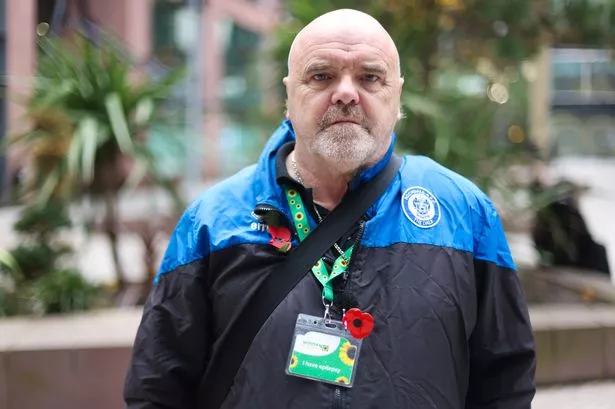A disabled man walked out of a Liverpool pub in tears after staff refused his request to lower the bright lights, which he claims exacerbate his epilepsy. Peter Hogan, a 66-year-old resident of Moreton, has been a frequent patron of Tess Riley’s on Great Charlotte Street for many years. However, his recent experience has left him feeling discriminated against and unsupported.
Hogan, who was diagnosed with epilepsy in 1991, explained that bright or flashing lights can trigger seizures. He stated, “I’m not going to risk my life, my health is more important than their pub.” Despite enjoying his time at Tess Riley’s, Hogan has found the lighting increasingly intolerable, prompting him to seek a solution from the management.
The incident occurred when Hogan asked a live artist to dim the lights during a visit. Instead of receiving assistance, he claims the artist responded, “If you don’t like it, go somewhere else.” This left Hogan feeling upset and overwhelmed, leading him to leave the pub in distress. “I walked out in tears, I went and sat outside and people asked if I was okay but I felt like I was going to have a fit,” he recounted.
Hogan’s health concerns prompted him to write a letter to the pub manager, requesting a resolution. He approached the manager later to confirm receipt of his letter but was informed that no contact would be made regarding his request. The manager reportedly stated that the lights could not be turned down just for him. Hogan expressed his concern about the potential consequences of a seizure occurring within the pub, saying, “If I just collapsed in there, they would just think I was drunk.”
In response, Tess Riley’s issued a statement emphasizing its commitment to all customers. A spokesperson noted that they had met with Hogan to explain that the problematic light is linked to the sound system and cannot be switched off. The pub also mentioned that alternatives for seating had been offered, but Hogan insisted on sitting in a specific location.
Tess Riley’s acknowledged Hogan’s longstanding patronage, highlighting his support for their charity events. The pub has raised nearly £1,400 for various charities over the past year, including a donation made by Hogan himself for a cancer charity. The spokesperson expressed sadness at the outcome, stating, “We value all of our customers and will always try our best to ensure that doesn’t happen; unfortunately, this time it seems unavoidable.”
Hogan emphasized that his concerns were not about seeking special treatment but rather about ensuring a safe environment. He stated, “I’m a human being… It’s their duty of care to look after their customers.” He noted that wearing a sunflower lanyard signifies his hidden health issues and his need for understanding from others.
As the debate over accessibility and accommodation continues, Hogan’s experience highlights the challenges faced by individuals with disabilities in public spaces. Epilepsy, characterized by recurrent seizures due to abnormal electrical activity in the brain, affects many people worldwide. The need for awareness and sensitivity towards such conditions remains essential in fostering inclusive public environments.







